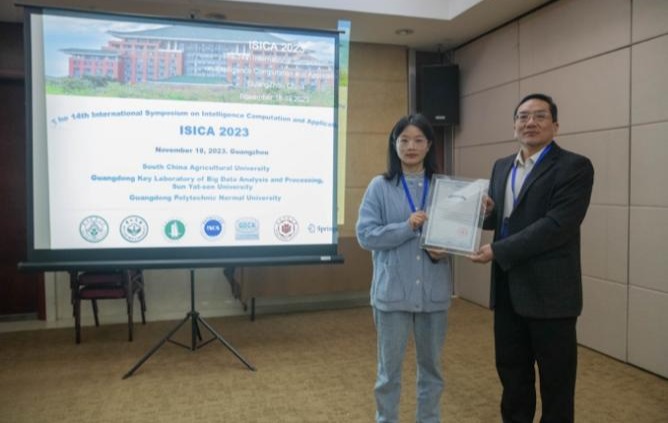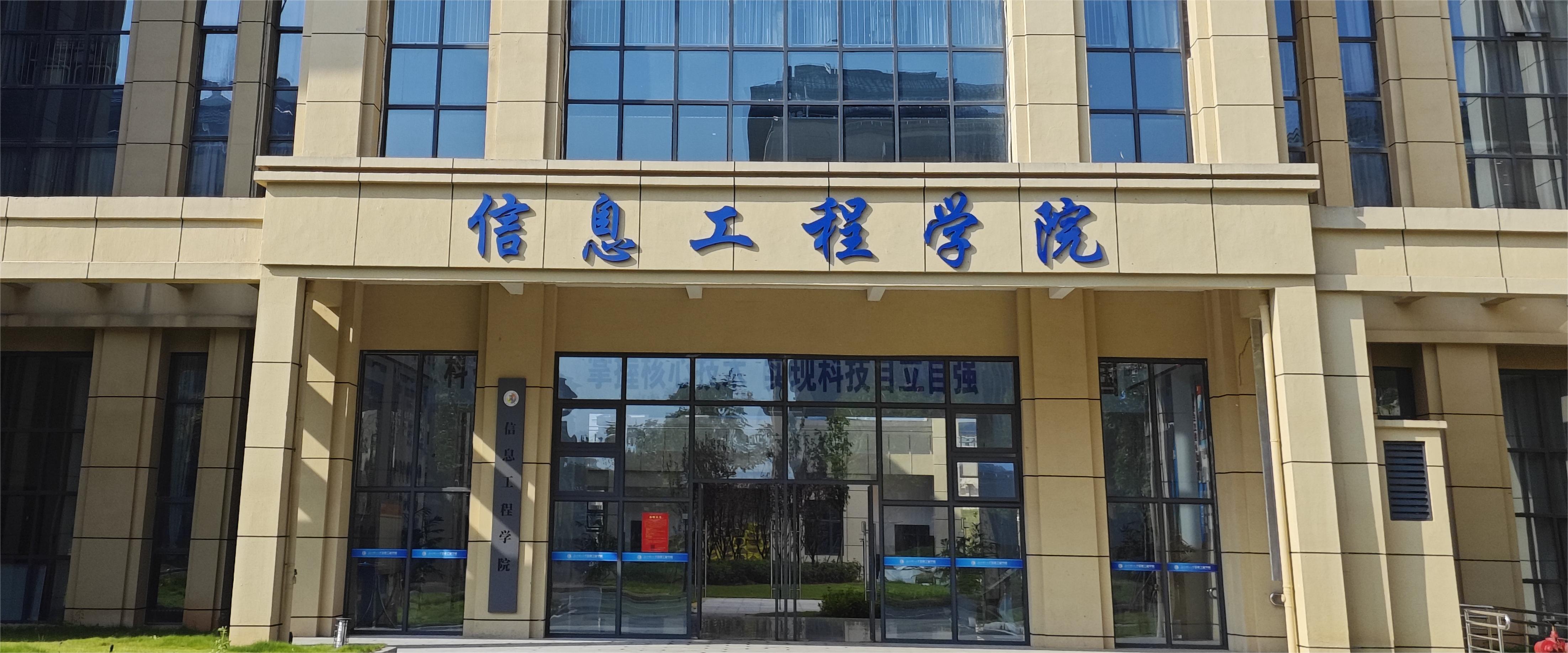The 14th International Symposium on Intelligence Computation and Applications (ISICA 2023) was hosted by South China Agricultural University, Guangdong Provincial Key Laboratory of Data Analysis and Processing at Sun Yat-sen University, and Guangdong Polytechnic Normal University. The symposium took place in Guangzhou from November 18 to 19, 2023. The aim of this symposium was to exchange the latest research achievements and advancements in the field of computational intelligence and applications in recent years, promoting further development and research in the field. The conference invited 6 keynote speakers and 48 oral presentations.
Dr. Wei Li from the school of information engineering invited by the symposium with some students to participate in the symposium and give oral presentations in this conference.
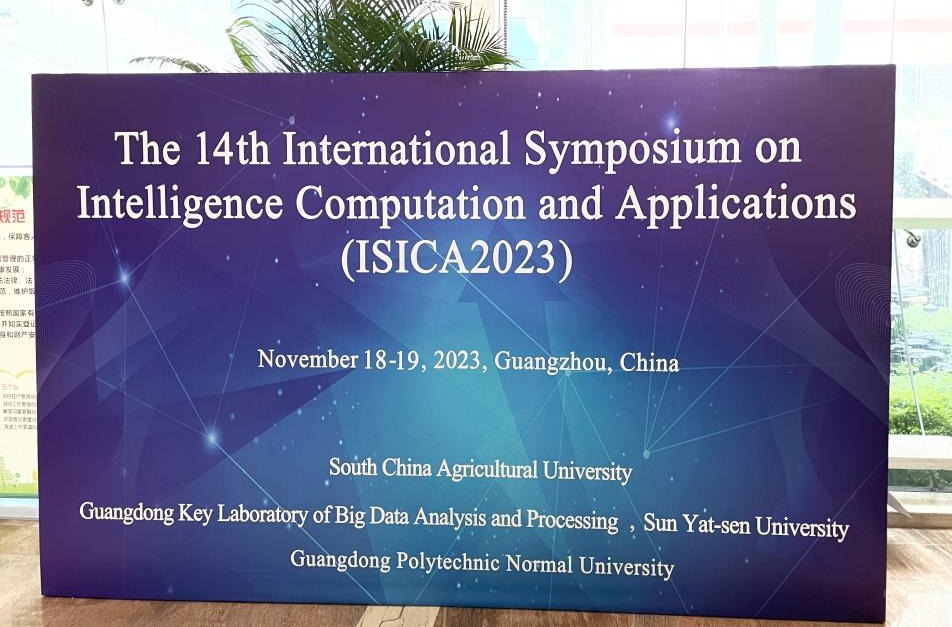

Oral Presentation: Cooperative-Guided Ant Colony Optimization with Knowledge Learning for Job Shop Scheduling Problem
Abstract: Due to the NP-hard nature in the Job Shop Scheduling Problem (JSP), the task of finding satisfactory solutions within a given timeframe is rendered challenging. A co-operative-guided ant colony optimization algorithm with knowledge learning (KLCACO) is proposed in this paper to address this difficulty. This algorithm integrates a data-based swarm intelligence optimization algorithm with model-based JSP schedule knowledge. A solution construction scheme based on scheduling knowledge learning is proposed for KLCACO. The problem model and algorithm data are fused by merging scheduling and planning knowledge with individual scheme construction to enhance the quality of the generated individual solutions. A pheromone guidance mechanism, which is based on a collaborative machine strategy, is used to simplify information learning and the problem space by collaborating with different machine processing orders. Additionally, the KLCACO algorithm utilizes the classical neighborhood structure to optimize the solution, expanding the search space of the algorithm and accelerating its convergence. The KLCACO algorithm is compared with other high-performance intelligent optimization algorithms on four public benchmark datasets, comprising 48 benchmark test cases in total. The effectiveness of the proposed algorithm in addressing JSPs is validated, demonstrating the feasibility of the KLCACO algorithm for knowledge and data fusion in complex combinatorial optimization problems.


Oral Presentation: Reinforcement Learning-Based Particle Swarm Optimization with Neighborhood Differential Mutation Strategy
Abstract: This paper proposes a reinforcement learning-based particle swarm optimization with neighborhood differential mutation strategy (NRLPSO). In NRLPSO, a dynamic oscillation inertial weight (DOW) strategy that provides particles with dynamic adjustment ability in different situations is designed. To resolve the operator selection conundrum of exploration and exploitation, a reinforcement learning-based velocity vector generation (VRL) strategy is developed. At each iteration, particles select the velocity update model based on reinforcement learning, and VRL helps to thoroughly search the problem space. A velocity updating mechanism based on cosine similarity (VCS) is applied to control the velocity learning mode to determine more promising solutions. Furthermore, to alleviate the problem of premature convergence, a local update strategy with neighborhood differential mutation (NDM) is employed to increase the diversity of the algorithm. To verify the efficiency of the proposed algorithm, the CEC2017 and CEC2022 test suites are implemented, and nine classic or state-of-the-art PSO variants are comprehensively tested.The experimental results show that NRLPSO outperforms the popular PSO variants in terms of convergence speed and accuracy. Since NRLPSO utilizes the DE mutations, it is compared with the representative LSHADE variant algorithm - LSHADE_SPACMA. Although LSHADE_SPACMA is better than NRLPSO concerning algorithm stability and convergence accuracy, we will refine our work in the future to enhance the performance in all aspects.
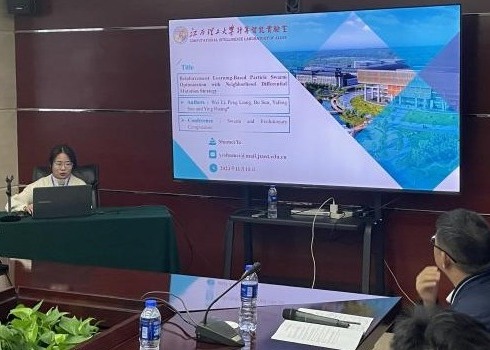
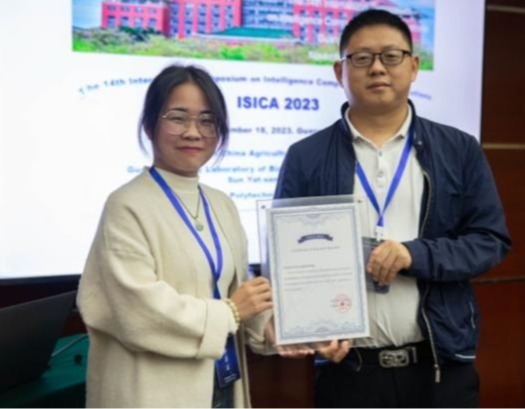
Oral Presentation: A Cooperative Particle Swarm Optimization with Difference Learning
Abstract: In this paper, a cooperative-based difference learning particle swarm optimization (CDLPSO) is proposed. In CDLPSO, dual swarm time-varying adjustment (DST) based on the subswarm division method is introduced on different periods, while using an appropriate subswarm division method to promote the cooperative learning of particles. Furthermore, a pros-cons coevolution mechanism (PCC) is designed in cooperative learning based on swarms. The elite subswarm can adaptively select a group of proper particles as the swarm updates, thereby obtaining a better exploration performance. Meanwhile, a stage-based cross-learning strategy (SBC) which is adopted to utilize common subswarm rationally adjusts different learning strategies on different stages. To further enhance the convergence accuracy, the common subswarm is added in more superior particles for learning. Ultimately, CDLPSO is used to solve the complex function problems on the CEC2013, CEC2022 test suite and a practical application. The experimental results demonstrate that CDLPSO can significantly balance exploitation and exploration abilities.
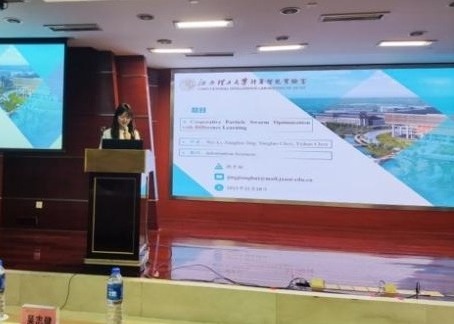
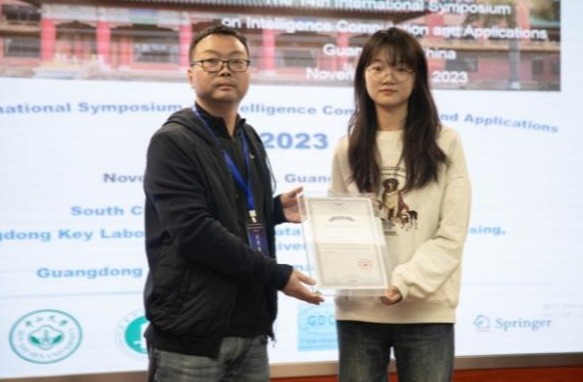
Oral Presentation: An Information Entropy-Driven Evolutionary Algorithm Based on Reinforcement Learning for Many-Objective Optimization
Abstract: In this paper, an information entropy-driven evolutionary algorithm based on reinforcement learning (RL-RVEA) for many-objective optimization with irregular Pareto fronts is proposed. The proposed algorithm leverages reinforcement learning to guide the evolution process by interacting with the environment to learn the shape and features of PF, which adaptively adjusts the distribution of reference vectors to cover the PFs structure effectively. Moreover, an information entropy-driven adaptive scalarization approach is designed in this paper to reflect the diversity of nondominated solutions, which facilitates the algorithm to balance multiple competing objectives adaptively and select solutions efficiently while maintaining individual diversity. To verify the effectiveness of the proposed algorithm, the RL-RVEA compared with seven state-of-the-art algorithms on the DTLZ, MaF, and WFG test suites and four real-world MaOPs. The results of the experiments demonstrate that the suggested algorithm provides a novel and practical method for addressing MaOPs with irregular PFs.

